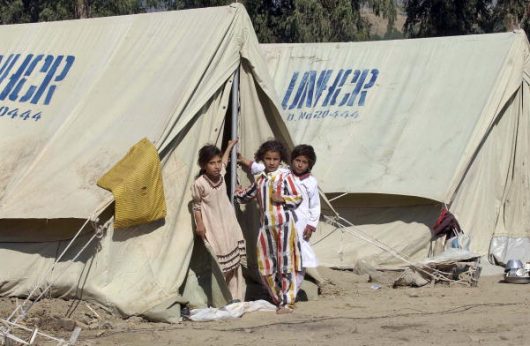Approaches for Helping Refugees Through Entrepreneurship
 One-fourth of the population in Lebanon is made up of Syrian refugees. War and political turmoil have forced these refugees to leave behind their lives and start from scratch in Lebanon. The initial humanitarian response to this problem was to supply short-term aid for the refugees until they could return to Syria. Many refugees have been in Lebanon for almost 10 years, so returning to Syria is unlikely.
One-fourth of the population in Lebanon is made up of Syrian refugees. War and political turmoil have forced these refugees to leave behind their lives and start from scratch in Lebanon. The initial humanitarian response to this problem was to supply short-term aid for the refugees until they could return to Syria. Many refugees have been in Lebanon for almost 10 years, so returning to Syria is unlikely.
Each year, $2.75 billion is needed to address the needs of these refugees, but less than half of that is available. Simply donating the bare necessities for survival to these refugees is not a sustainable solution.
Alfanar is a venture philanthropy organization that supports social entrepreneurs aiming to improve refugee life in Lebanon. A shift to helping refugees through entrepreneurship offers a viable long-term solution.
The Ana Aqra Association is an organization in Lebanon that provides educational support services to Syrian refugees and underprivileged Lebanese children. Programs are offered in literacy, accelerated learning and social and emotional development. In order to fund their efforts in public schools, the organization sells teacher training services to private schools and international NGOs.
Another sustainable solution is pioneered by the Nawaya Network, which connects refugees in Lebanon with the resources needed to develop their talents. The organization has developed a workshop to teach young people how to launch businesses to solve problems in their community.
The United Nations High Commissioner for Refugees works to create environments in which innovative ideas for helping refugees through entrepreneurship can emerge, some of which are social enterprises. An employee of the organization, Natalia Nahra, launched an app to provide refugees in Israel with the information needed for them to utilize services available.
Nahra noticed throughout her life that people without access to information cannot make informed choices, from U.S. workers being unaware of their rights to families in Southeast Asia sending young girls to big cities alone, unaware of the risk of human trafficking.
The problem also exists for refugees in Israel. Information for refugees is provided in English and Hebrew, which most refugees cannot read. In addition, information is scattered on Facebook or at various organizations. As a result, refugees seeking services waste frustrating amounts of time visiting organizations that cannot help them. With better access to information on services available, refugees could better access resources by only visiting organizations that have what they need.
Information such as reception hours and new policies change daily, so the information needs to be distributed quickly. Nahra launched her app in June 2017 with the hope of eliminating these unnecessary obstacles for refugees.
These solutions are examples of the viability of shifting from short-term aid to sustainable solutions for helping refugees.
– Kristen Nixon
Photo: Flickr
